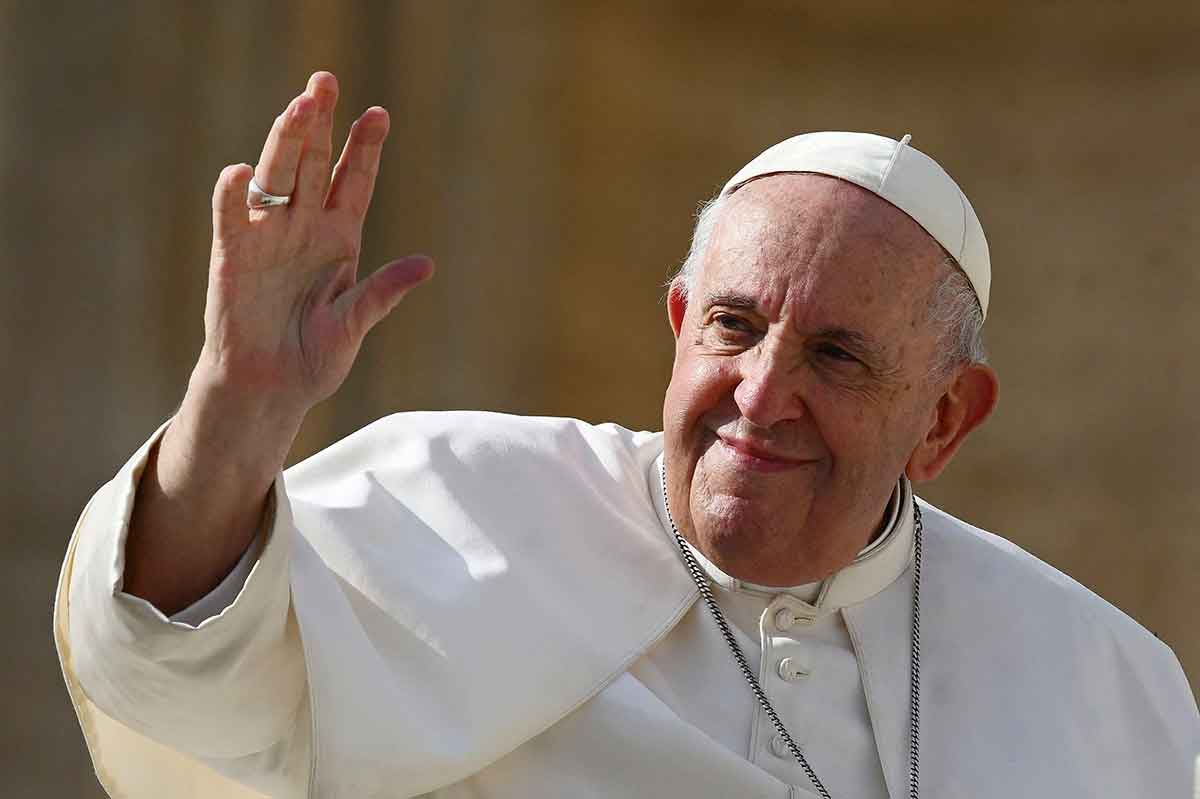Vatican City — The Vatican has announced the death of Pope Francis, the 266th head of the Roman Catholic Church, at the age of 88. Revered globally for his unwavering commitment to the poor, bold reforms, and deep humility, his passing marks the end of a historic and transformative era for the Catholic Church.
Cardinal Kevin Farrell, the Vatican camerlengo, delivered the solemn announcement early Monday morning:
“Dear brothers and sisters, with deep sorrow I must announce the death of our Holy Father Francis. At 7:35 this morning, the Bishop of Rome, Francis, returned to the house of the Father.”
The world mourns a man who transcended the traditional boundaries of papal influence. Born Jorge Mario Bergoglio in Buenos Aires, Argentina, he was the first pope from Latin America and the first Jesuit to hold the papacy. His journey from the streets of Buenos Aires to the Apostolic Palace was one rooted in faith, service, and an unyielding devotion to humanity.
A Papacy That Challenged and Changed
From the moment of his election on March 13, 2013, Francis set a different tone. He chose the name “Francis” in honor of St. Francis of Assisi, signaling his commitment to the poor and to peace. Eschewing many of the traditional papal luxuries, he opted to live in the Casa Santa Marta guesthouse rather than the grand Apostolic Palace — a small but symbolic gesture that defined his papacy.
His leadership focused on:
-
Social justice: Advocating for the rights of migrants, the homeless, and the marginalized.
-
Climate action: Publishing Laudato Si’, a landmark encyclical on environmental responsibility.
-
Church reform: Targeting Vatican corruption, enhancing financial transparency, and simplifying hierarchical structures.
-
Inclusion: Opening doors to divorced Catholics, endorsing blessings for same-sex couples, and empowering women in Vatican roles.
-
Interfaith dialogue: Bridging divides with the Muslim world and seeking peace in global conflicts.
Final Days of a Tireless Shepherd
Though his final months were marked by recurring illness, including a recent severe bout of pneumonia, Pope Francis continued to serve with tenacity. Only a day before his death, he delivered the traditional Easter blessing to a massive crowd from the balcony of St. Peter’s Basilica — his last public appearance.
He had also met with U.S. Vice President JD Vance and visited a Rome prison, showing his enduring commitment to justice and compassion.
The suddenness of his death surprised many, especially after a relatively stable recovery from his hospital stay. Still, as Cardinal Farrell noted, his entire life was “dedicated to the service of the Lord and His Church.”
Controversial but Courageous
Pope Francis’ reforms earned him admiration worldwide, but also fierce resistance, particularly from conservative factions within the Church and certain political circles. In the United States, powerful Catholic groups criticized his positions on immigration, LGBTQ+ inclusion, and economic inequality.
He openly criticized former President Donald Trump’s immigration policies, calling for the world to embrace displaced persons with empathy and dignity. He also referred to rising nationalist populism as a danger to human unity.
Despite resistance, he stood firm, always emphasizing that the Gospel’s core message is love, compassion, and mercy — not exclusion or judgment.
Scandals, Reforms, and the Road Not Fully Traveled
No modern pope could escape the shadows of the clergy sexual abuse crisis, and Pope Francis made it his mission to address the issue head-on. He implemented laws to hold bishops accountable and launched Vatican-led investigations into abuse coverups.
However, critics argue that the Church still fell short of full transparency and justice for victims.
Similarly, while he made strides toward greater inclusion — such as allowing women to hold key Vatican positions and authorizing blessings for same-sex couples — many reformers hoped he would go further, especially on:
-
Ordaining married men, particularly in regions like the Amazon
-
Fully embracing LGBTQ+ individuals within doctrinal teachings
-
Giving women leadership in ministry roles beyond the diaconate
A Life Rooted in Faith and Service
Born in 1936 to Italian immigrants in Argentina, Bergoglio entered the Jesuit order and became a cardinal in 2001. Known for taking the subway, cooking his own meals, and living simply, he became a spiritual leader not only to Catholics but to millions of others inspired by his humility.
His papacy saw him recognized not just as a religious leader, but as a global moral voice. Time magazine named him Person of the Year in 2013, and he regularly topped Gallup’s most admired people rankings.
He was also pivotal in modernizing how the Vatican communicated — embracing social media, launching the @Pontifex Twitter account, and speaking directly to young people in ways previous popes had not.
Legacy of Pope Francis
In death, as in life, Pope Francis leaves behind a legacy that will be debated, studied, and honored for decades to come. His imprint on the Church is indelible:
-
Human dignity at the center of every papal act
-
Environmental responsibility elevated to a matter of spiritual urgency
-
Transparency in governance and efforts to dismantle corruption
-
A Church more welcoming, even if not fully transformed
His passing sets the stage for a pivotal moment: the election of the next pope. Cardinals from around the world will now gather in Rome for a conclave that will shape the Church’s future trajectory.
A Final Benediction
“With immense gratitude for his example as a true disciple of the Lord Jesus,” said Cardinal Farrell, “we commend the soul of Pope Francis to the infinite merciful love of the Triune God.”
Across the globe, churches toll bells and faithful light candles in honor of the man who once said,
“The Church is not a tollhouse; it is the house of the Father, where there is a place for everyone.”
In life, Pope Francis made space for everyone. In death, the world remembers him as a shepherd who walked with the people — never above them.
YAllA TV – www.yallatv.ae





